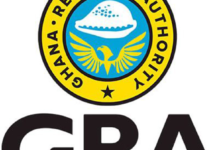
The Bank of Ghana (BoG) has accumulated enough reserves to meet the forex needs of the country as the country approaches the Christmas season, Governor (BoG), Dr Ernest Addison, has stated.
According to him, the BoG was in a pole position to intervene in the forex market if it became necessary.
There is strong demand for forex in country in the months preceding Christmas as traders import to stock their shops to meet the increase demand for their products in the Christmas season and the increase demand for forex by exporters often puts pressure on the cedi.
Dr Addison was asked during a press briefing following the Monetary Policy Committee (MPC) meeting in Accra about the adequacy of the Bank of Ghana’s foreign exchange reserves to support the market and enhance the stability of the cedi as the nation approaches the Christmas season.
At the latest MPC of BoG, the Committee lowered the monetary policy rate by 200 basis points to 27 per cent from 29 per cent on the back of robust growth, declining inflation and positive external position.
Dr Addison said BoG had enough reserves and had the ability to intervene in the market if it became necessary.
“So I think the market should be rest assured that the central bank has enough reserves. If it is necessary for us to increase the foreign exchange intervention, we will,” he told reporters.
The Governor also stated that the external payment position of the country continued to improve, characterised by higher trade surplus, and strong reserves build-up.
“The country’s Gross International Reserves improved by $1.58 billion to $7.50 billion at the end
of August, covering 4 months of import cover,” he stated.
Dr Addison further explained that the robust growth in gold exports had helped to improve the trade surplus and international reserves, complimented by external financial inflows from the IMF and the World Bank.
“These together have contributed to an improved balance of payments position in the first half of 2024,” he stated, stressing that, “Looking ahead to the end of the year, the balance of payments is projected to achieve a surplus, driven by increased exports, stronger remittance growth, and lower government external payments.”
Dr Addison averred that economy was “recovering quickly” evidenced by the stronger than expected Gross Domestic Product (GDP) outturn for the second quarter of the year.
He noted that real GDP grew by 6.9 per cent in the second quarter of 2024, compared with 2.5 per cent in the corresponding quarter of 2023, and 4.7 per cent in the first quarter of 2024.
Moreover, Dr Addison disclosed that preliminary data since the last MPC meeting held in July 2024 indicated that macroeconomic conditions had generally improved.
“Headline inflation continues to ease in the last five months, declining to 20.4 per cent in August from the previous month rate of 20.9 per cent.
“The latest forecasts show that inflation will continue to ease towards the range target of 13-17 per cent for the year and steadily track back towards the medium-term target of 6-10 per cent by the end of 2025, barring unanticipated shocks,” Dr Addison added.
KINGSLEY ASARE







